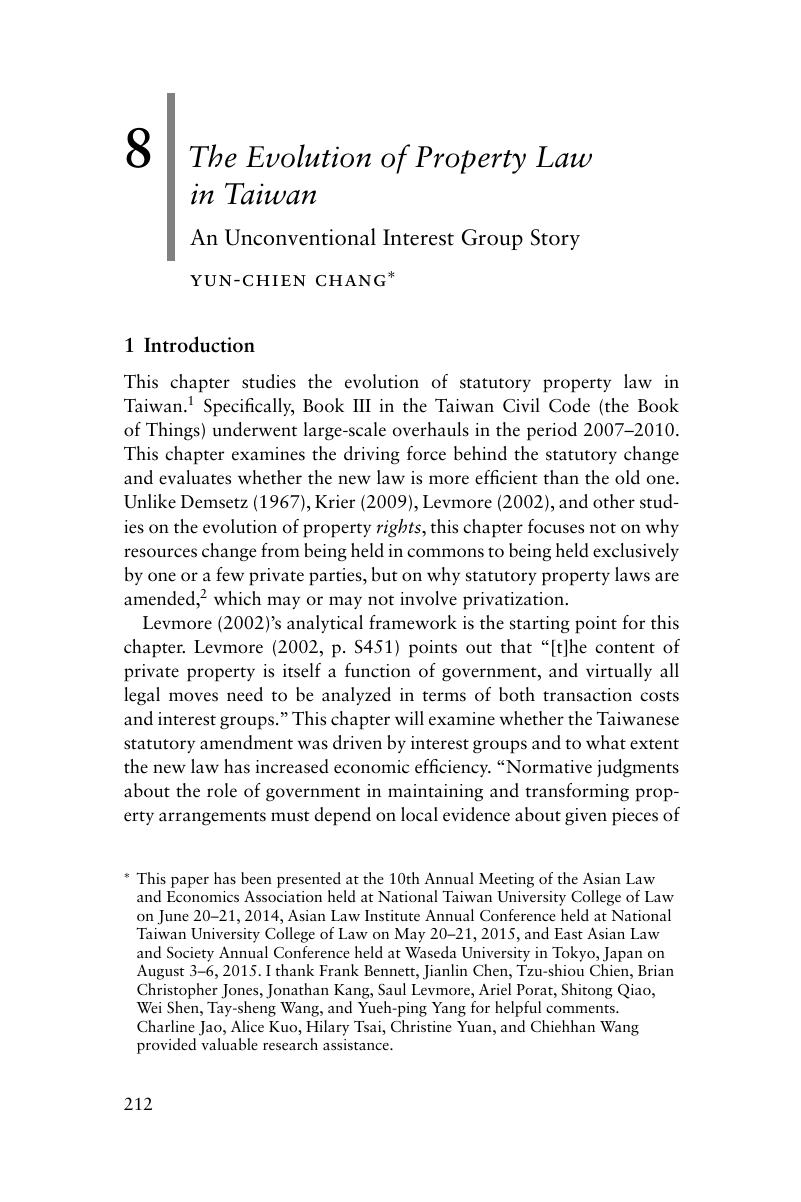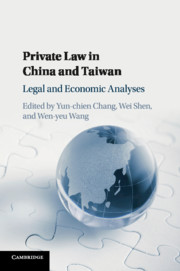Book contents
- Private Law in China and Taiwan
- Private Law in China and Taiwan
- Copyright page
- Dedication
- Contents
- Figures
- Contributors
- Acknowledgments
- Introduction
- Part I Foundation
- Part II Application
- 3 The Evolution of Contract Law in China
- 4 The Evolution of Contract Law in Taiwan
- 5 The Evolution of the Law of Torts in China
- 6 The Evolution of Tort Law in Taiwan
- 7 The Evolution of Chinese Property Law
- 8 The Evolution of Property Law in Taiwan
- 9 Evolution of Corporate Law in China: Mission Possible to Reform SOEs?
- 10 The Evolution of Company Law in Taiwan
- Conclusion
- Index
- References
8 - The Evolution of Property Law in Taiwan
An Unconventional Interest Group Story
from Part II - Application
Published online by Cambridge University Press: 01 December 2016
- Private Law in China and Taiwan
- Private Law in China and Taiwan
- Copyright page
- Dedication
- Contents
- Figures
- Contributors
- Acknowledgments
- Introduction
- Part I Foundation
- Part II Application
- 3 The Evolution of Contract Law in China
- 4 The Evolution of Contract Law in Taiwan
- 5 The Evolution of the Law of Torts in China
- 6 The Evolution of Tort Law in Taiwan
- 7 The Evolution of Chinese Property Law
- 8 The Evolution of Property Law in Taiwan
- 9 Evolution of Corporate Law in China: Mission Possible to Reform SOEs?
- 10 The Evolution of Company Law in Taiwan
- Conclusion
- Index
- References
Summary

- Type
- Chapter
- Information
- Private Law in China and TaiwanLegal and Economic Analyses, pp. 212 - 244Publisher: Cambridge University PressPrint publication year: 2016
References
References in Chinese
References in English
- 3
- Cited by



